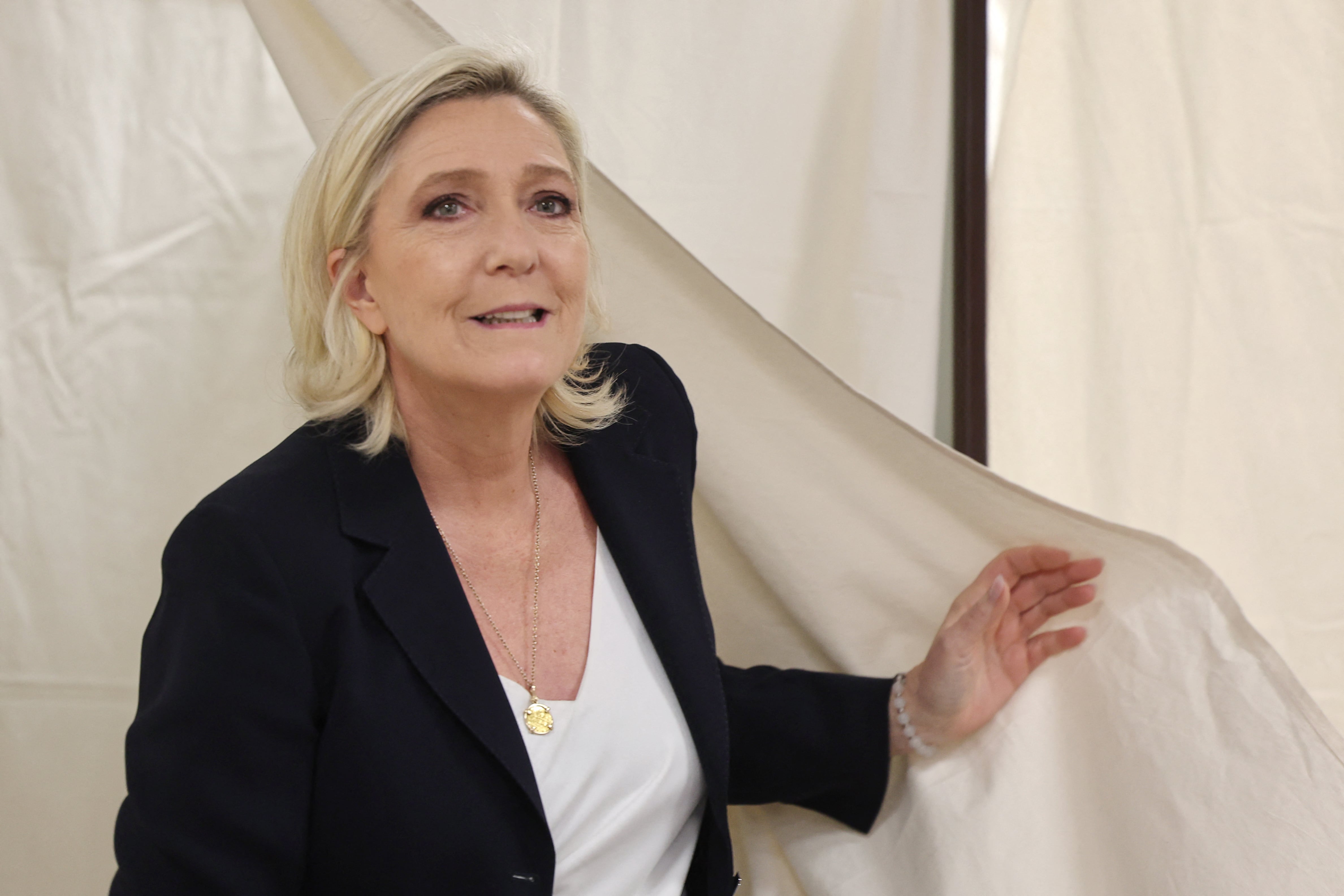
The far right won this Sunday the first round of a crucial legislative election in France, in which the president’s center-right forces Emmanuel Macron They came in third place behind the left, according to initial estimates.
He far-right party National Rally (RN) of Marine Le Pen and his allies achieved more than 34% of the vote, but will have to wait for the second round on July 7 to find out if they reach an absolute majority in the National Assembly (lower house).
“We need an absolute majority,” Le Pen told supporters in her stronghold of Hénin-Beaumont in northern France. The French “have delivered a resounding verdict,” said her candidate for prime minister, Jordan Bardella, from Paris.
Macron’s alliance would achieve between 20.5% and 21.5%, behind the left-wing coalition New Popular Front (NFP)who would obtain between 28.5% and 29.1% of the votes, according to the first estimates of the polling institutes Ifop and Ipsos.
The coming to power of the extreme right, for the first time since the Liberation of France from the occupation of Nazi Germany in 1945, would add a new country to the European Union (EU) governed by this trend, like Italy.
And it could weaken Macron’s Ukraine support policy. Although Le Pen’s party, whose detractors consider her close to Vladimir Putin’s Russia, assures that it supports kyiv, it emphasizes that it wants to avoid an escalation with Moscow.
In a vote perceived as historic, at 5:00 p.m., three hours before the closing of the polling stations, the turnout reached 59.39% of voters, 20 points more than at the same time in 2022, according to the Ministry of the Interior.
The electoral system itself makes the final result of a National Assembly uncertain, where the three blocs that emerged from the 2022 elections will continue, but with a new balance of forces.
Its 577 deputies are elected in single-member constituencies, with a two-round majority system. According to the results of each constituency, two, three or more candidates may enter the second round.
– Retire or stay? –
The pressure on RN’s rivals intensified to prevent their coming to power, especially when the first projections for this Sunday range between a simple or an absolute majority for the extreme right and its allies in the lower house, that is, between 240 and 310. deputies.
“Tonight, our democracy and republican values are at stake (…) It is imperative to block the extreme right,” said former union leader Laurent Berger, calling on parties to withdraw in the event of runoffs with three candidates to increase the options of the best positioned against a far-right rival.
Socialists, environmentalists and communists, allies of La Francia Insumisa (LFI, radical left) in the NFP, already assured during the campaign that they would withdraw if their candidates entered the second round in third position behind an official candidate.
LFI leader Jean-Luc Mélenchon has said that his candidates will also participate in the constituencies where the RN came first. However, the ruling party is reluctant to withdraw in order to favour this party against the far right.
The French president, whose popularity fell due to the early elections, called for a “broad” alliance against the extreme right, “clearly democratic and republican,” during the second round, thus prioritizing a case-by-case policy.
The right-wing party Les Républiques (LR), which split in two in mid-June when its president Eric Ciotti decided to make a pact with Le Pen’s party, has refused to call for the far right to isolate itself.
“We are not giving voting instructions,” said the leadership of the party opposed to Ciotti. Estimates gave him 10% of the vote in the first round.
Macron, whose term ends in 2027, called early elections on June 9 following the resounding victory of RN in the European elections in France and now risks sharing power with a government of another political colour, less than a month before the Paris Olympic Games.
RN has already announced that if it achieves an absolute majority, it will nominate Bardella as prime minister. Bardella has said that he will be the head of government for “all French people” but will be “intransigent in the policy” he will apply.
RN’s rivals warn of the risk of a far-right takeover, as the party has worked hard over the past decade to tone down the image inherited from its founder Jean-Marie Le Pen, known for his racist and anti-Semitic comments.
It may interest you
- France: Raising the retirement age puts tensions on parliamentary elections
- Do Macron and Le Pen bury the left-right dialectic?
- Defeat is a victory for the French far-right
Source: Gestion
Ricardo is a renowned author and journalist, known for his exceptional writing on top-news stories. He currently works as a writer at the 247 News Agency, where he is known for his ability to deliver breaking news and insightful analysis on the most pressing issues of the day.











